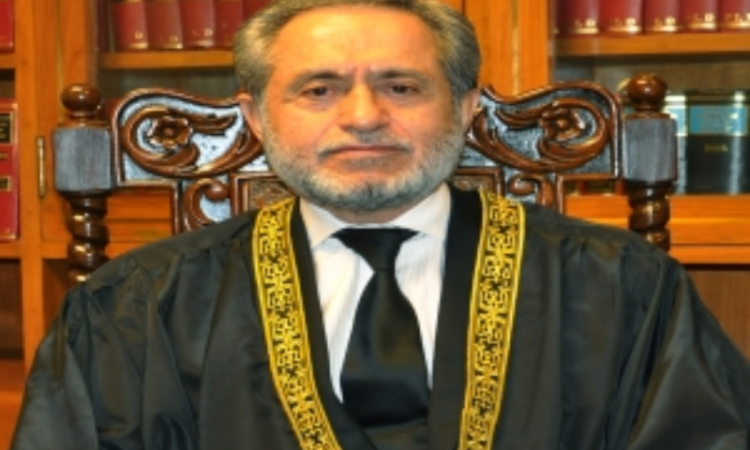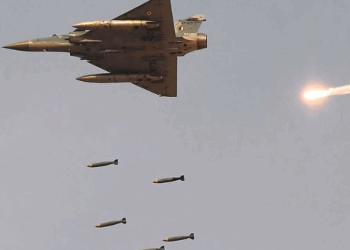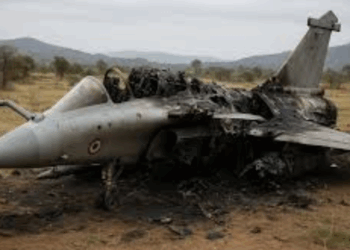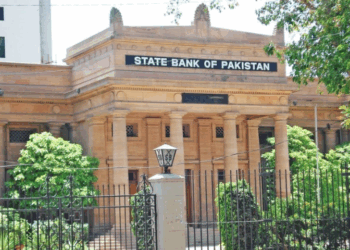Islamabad, January 8, 2025: The Supreme Court resumed hearings on Wednesday for an intra-court appeal challenging the military court trials of civilians. Justice Jamal Khan Mandokhail remarked that the suspects from the May 9 incidents have no link with the armed forces.
A seven-member constitutional bench, headed by Justice Aminuddin Khan, is overseeing the case. Advocate Khawaja Haris, representing the Ministry of Defence, opened his arguments by emphasizing that the court’s previous decision relied on Articles 8(5) and 8(3) of the Constitution. He contended that these articles are distinct and should not be conflated.
Justice Mandokhail urged Haris to proceed with his arguments, stating, “Your point was understood yesterday; now, complete the remaining arguments.”
Referring to the previous ruling that annulled civilian trials in military courts, Haris cited the FB Ali case, arguing that it established a precedent permitting civilian trials under military jurisdiction. However, he claimed that the majority judgment misinterpreted Articles 8(3) and 8(5).
Haris further highlighted that the FB Ali case was unique, involving a retired officer who was prosecuted as a civilian post-retirement. Justice Mandokhail responded by clarifying, “In the present case, the May 9 suspects have no ties to the armed forces. They are neither ex-servicemen nor individuals with military links.”
The bench continues to deliberate on the constitutional validity of military court trials for civilians. During an earlier session, Justice Mandokhail stated that the executive branch cannot perform judicial functions under the Constitution. He added that the Pakistan Army Act, 1952 applies solely to armed forces personnel.
On Tuesday, when the bench resumed hearing the appeals, Justice Aminuddin Khan announced that the court would focus exclusively on the military courts’ case for two days and instructed the registrar to delist other matters.
During the hearing, Khawaja Haris argued that the Supreme Court had previously allowed the court-martial of civilians under military jurisdiction. Justice Mandokhail questioned whether the Ministry of Defence, as an executive body, could act as both judge and decision-maker in cases involving itself. He stressed the constitutional principle of separation of powers, noting, “The Constitution prohibits the executive from performing judicial functions, a fundamental issue in cases involving military courts.”
Haris argued that the executive could intervene in the absence of an alternative forum. Justice Mandokhail countered by pointing out the existence of anti-terrorism courts (ATCs) as a valid legal forum. He questioned how the executive could assume a judicial role when such courts are operational.
Justice Mandokhail further noted that the Pakistan Army Act, 1952 is explicitly applicable to members of the armed forces. He questioned whether Article 8(3) of the Constitution, which pertains to military discipline, could encompass criminal matters. He emphasized that the Constitution refers to “citizens of Pakistan” and not merely civilians.
Haris contended that civilians involved with the armed forces are excluded from seeking remedies in civil courts under fundamental rights. He noted that Pakistan has endured 14 years of martial law, and the Army Act applies in cases where civilians interfere with military duties. Justice Mandokhail questioned whether a civilian attempting to cross a military checkpoint could be deemed interference, warning against broad interpretations that might lead to overreach.
Justice Muhammad Ali Mazhar observed that the case involves two key aspects: the Supreme Court’s October 2023 decision, which annulled specific provisions of the Pakistan Army Act, 1952, and declared military trials of civilians illegal.
Justice Musarrat Hilali highlighted Justice Mandokhail’s pertinent question regarding the appropriate jurisdiction for disputes involving civilians at military checkpoints. Justice Mazhar remarked that the Army Act specifies the crimes it covers.
Justice Hilali raised concerns about extending military jurisdiction to civilians, stressing the need to determine the constitutional legitimacy of such trials.
At the session’s conclusion, Hafeezullah Niazi, the father of Imran Khan’s nephew Hassaan Niazi, addressed the court, expressing concerns about the treatment of 22 prisoners convicted by military courts in Lahore. He claimed that these prisoners, including his son, were being held in a high-security zone without rights guaranteed under the jail manual. Justice Mazhar questioned why convicted prisoners were being denied their rights and directed the Punjab government to respond to these allegations.
Hafeezullah Niazi informed the court that sentences ranging from 2 to 10 years had been handed down without detailed reasoning for the judgments. Justice Hilali asked whether reasons for the judgments were withheld. Justice Mazhar advised Niazi to present his arguments at the appropriate time.







